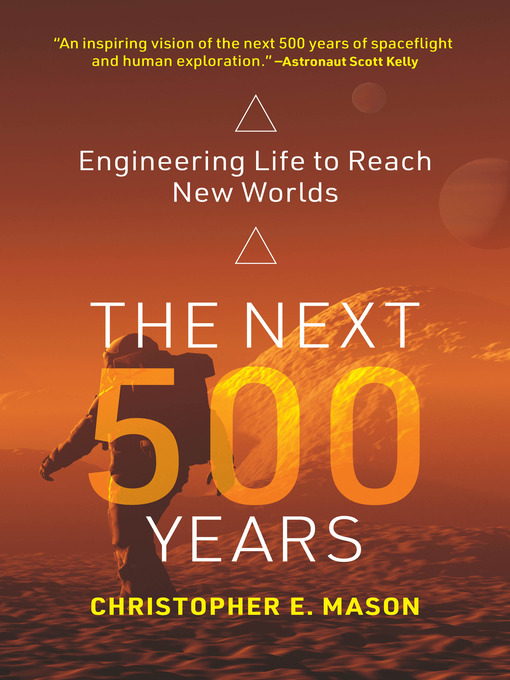As the only species aware that life on Earth has an expiration date, we have a moral duty to land on, to live on, and to extend life to other planets.
Inevitably, life on Earth will come to an end, whether by climate disaster, or by cataclysmic war—or when the sun runs out of fuel in a few billion years. To avoid extinction, will we have to find a new home planet, perhaps even a new solar system, to inhabit?
In this provocative and fascinating book, Christopher Mason argues that we have a moral duty to do just that. Because we are the only species aware that life on Earth has an expiration date, we have a responsibility to act as the shepherd of lifeforms—not only for our species but for all species on which we depend and for those still to come (by accidental or designed evolution). Mason argues that the same capacity for ingenuity that has enabled us to build rockets and land on other planets can be applied to redesigning biology so that we can sustainably inhabit those planets. And he lays out a 500-year plan for undertaking the massively ambitious project of reengineering human genetics for life in other worlds.
-
Creators
-
Publisher
-
Release date
April 20, 2021 -
Formats
-
Kindle Book
-
OverDrive Read
- ISBN: 9780262360067
-
EPUB ebook
- ISBN: 9780262360067
- File size: 2592 KB
-
-
Accessibility
Publisher statement (EPUB)
The publisher provides the following statement about the accessibility of the EPUB file supplied to OverDrive. Experiences may vary across reading systems. After borrowing the book, you may download the EPUB files to read in another reading system.
Ways Of Reading
No information about appearance modifiability is available.
Not all of the content will be readable as read aloud speech or dynamic braille.
Conformance
No information is available.
Hazards
The presence of hazards is unknown.
-
Languages
- English
-
Reviews
-
Publisher's Weekly
January 25, 2021
Missions to other planets are a “necessary duty for humanity,” argues Mason, a geneticist and associate professor at Weill Cornell Medicine, in this impassioned vision for the future of life. Mason believes that the awareness that all life on Earth will some day be extinct creates the “responsibility, power, and opportunity” for humans to be the “guardian of all life forms.” He suggests that intelligent life can thrive centuries into the future in space, which he writes will require genetic engineering. To that end, he shares discoveries about the effects of living in space on the human body, noting that Scott Kelly, an American astronaut who spent almost a year on the International Space Station, returned to Earth with “more than 8,600 genes...significantly altered.” Mason explores findings on organisms that live in extreme environments, such as the tardigrade, a microscopic animal capable of surviving in the vacuum of space whose DNA could provide a template for modifying human genes to create resistance to high levels of radiation. While Mason’s road map for realizing his vision feels far-fetched, his optimism as to what humans are capable of is inspiring. Readers looking for science writing that sees bold possibilities in the future will be enthralled.
-
Formats
- Kindle Book
- OverDrive Read
- EPUB ebook
subjects
Languages
- English
Loading
Why is availability limited?
×Availability can change throughout the month based on the library's budget. You can still place a hold on the title, and your hold will be automatically filled as soon as the title is available again.
The Kindle Book format for this title is not supported on:
×Read-along ebook
×The OverDrive Read format of this ebook has professional narration that plays while you read in your browser. Learn more here.

